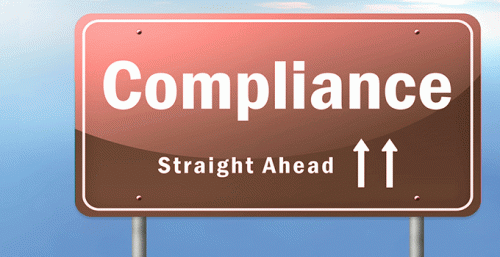Compliance
Compliance Corner - Credit Suisse, ASIC, Others

The latest compliance issues in wealth management across Asia-Pacific.
Credit Suisse
Credit Suisse
is paying $30 million to resolve charges from the US Securities
and Exchange Commission that it won investment banking business
by corruptly influencing foreign officials.
As reported previously by this news service in early June, the
Zurich-listed lender has already
agreed to pay a $47 million penalty to US authorities for its
breach of the Foreign Corrupt Practices Act. (It is not
immediately clear from the SEC statement as to whether the $30
million figure is a new development. This news service has
contacted the bank for comment and may update in due course.)
In last week's SEC statement, the financial watchdog said several
senior Credit Suisse managers in the Asia-Pacific region sought
to win business by hiring and promoting individuals connected to
government officials as part of a quid pro quo arrangement.
"While the practice of hiring client referrals bypassed the
firm’s normal hiring process, employees in other Credit Suisse
subsidiaries and affiliates were aware of it and in some
instances approved these `relationship hires' or `referral
hires'. The SEC’s order found that in a six-year period,
Credit Suisse offered to hire more than 100 individuals referred
by or connected to foreign government officials, resulting in
millions of dollars of business revenue," the SEC said.
The SEC’s order finds that Credit Suisse violated the
anti-bribery and internal accounting controls provisions of the
Securities Exchange Act of 1934. Credit Suisse agreed to
pay disgorgement of $24.9 million plus $4.8 million in interest
to settle the SEC’s case.
ASIC
Financial planner Neil Evans has appeared before the Melbourne
Magistrates’ Court and pleaded guilty to one charge relating to
vote-rigging in the director elections for WAW Credit Union
Co-Operative.
Evans’ guilty plea followed an investigation by the Australian
Securities and Investments Commission.
Between 4 November 2015 and 18 November 2015, WAW conducted
elections to fill two vacant board positions. The voting took
place electronically, with WAW members using their personal
details to gain access to an online portal to cast votes. In an
agreed summary of facts tendered to the court, Evans, admitted he
misused the personal details of not less than 499 WAW members to
gain access to the online voting portal and cast ballots in the
election for two candidates without the authorisation of those
members.
This meant that one person was improperly elected to the WAW
board and another person who should have been elected was not.
The court found proven that Evans had committed the offence of
causing unauthorised modification to data held in a computer
contrary to section 247C of the Victorian Crimes Act.
The court placed Evans on a 12-month good behaviour bond,
conditional upon him paying AU$12,000 ($9,000) into the court
fund and prohibiting him from providing financial advice to WAW
customers for the duration of the bond.
The matter was prosecuted by the Commonwealth Director of Public
Prosecutions. ASIC’s investigation into the conduct of the
election is ongoing.
CBA, ANZ
ASIC has accepted court enforceable undertakings from the
Commonwealth Bank of Australia and
Australia and New Zealand Banking Group under which the banks
have agreed to change the way they distribute superannuation
products to their customers.
ASIC investigated CBA's distribution of its essential super
product and ANZ’s distribution of its smart choice super and
pension product (Smart Choice Super) through bank
branches.
The financial watchdog found a common practice of offering those
products to customers at the conclusion of a fact-finding process
about customers’ overall banking arrangements. CBA's fact-finding
process was called a “financial health check”. CBA staff also
sometimes helped customers roll over their other superannuation
into the Essential Super account at the time of distribution.
ANZ’s fact-finding process was called an “A-Z review”.
ASIC was concerned that the proximity between the fact-finding
process and the discussion about essential super or smart choice
super was leading CBA staff and ANZ staff to provide personal
advice to customers about their superannuation. Branch
staff for both CBA and ANZ were only authorised to provide
general advice. It was concerned that customers may have thought
that the CBA branch staff or the ANZ branch staff were
considering risks specific to the customer when this was not the
case.
These court enforceable undertakings prevent CBA from
distributing essential super in conjunction with a financial
health check and ANZ from distributing smart choice super in
conjunction with an A-Z review.
They also require CBA and ANZ to each make an AU$1.25 million
community benefit payment. If there is a breach of the
undertaking ASIC can, under the ASIC Act, apply for orders from
the court to enforce compliance.
CBA chose to suspend the distribution of essential super in CBA
branches in October 2017.
These actions are part of ASIC’s wealth management project. The
project was established in October 2014 to lift the standards of
major financial advice providers. The wealth management project
focuses on the conduct of the largest financial advice firms in
Australia (NAB, Westpac, CBA, ANZ, Macquarie and AMP).